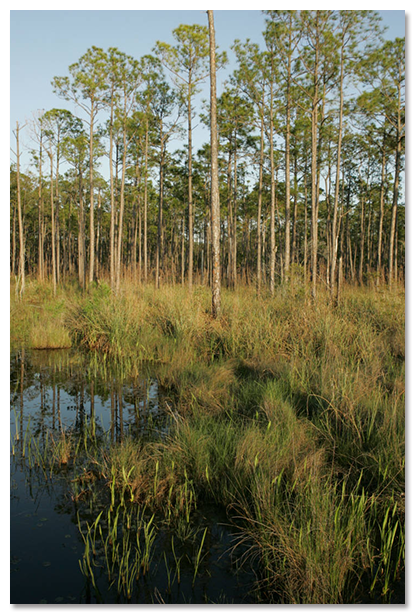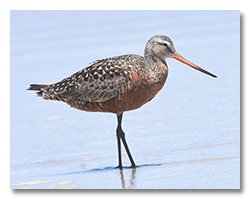
The Science Team maintains the integrity of the biological foundations of regional bird conservation plans endorsed by the Gulf Coast Joint Venture (GCJV) Management Board, reviews habitat conservation proposals for consistency with regional bird conservation plans, and provides technical guidance regarding habitat and population monitoring.
- Represent the current state of knowledge of migratory bird biology through expertise and knowledge of published and unpublished information.
- Provide technical guidance relative to population and habitat objectives.
- Identify key assumptions in regional bird conservation plans, and identify and prioritize evaluation needs to address those assumptions or critical information voids.
- Serve as independent technical advisors to the Biological Team Leader (BTL) and Bird Conservation Specialist (BCS) regarding all biological aspects of planning and evaluation.
- Refine population and habitat objectives as warranted by new information.
- Guide habitat and population monitoring that is directly linked to population and habitat objectives in regional bird conservation plans.
- Identify anticipatory research that furthers the scientific basis for regional migratory bird conservation.
- Review and rank habitat project proposals for applicability to GCJV implementation plans as requested by the Management Board Chairperson.
- Participate in Science Team meetings, not normally exceeding 2 per year, as the need is determined by Science Team Working Group Chairpersons.
The Science Team is composed of 4 Working Groups - Waterfowl, Landbird, Shorebird, and Waterbird. The GCJV Biological team Leader (BTL) serves as Chairperson for the Waterfowl Working Group. The Bird Conservation Specialist (BCS) serves as Chairperson for the other working groups. Science Teams working groups generally consist of habitat management-oriented migratory bird scientists with international, national, or regional recognition in one or more subject areas of significance to the Gulf Coast.
Science Team Structure and Membership
Waterfowl Working Group

USGS Wetland and Aquatic Research Center
700 Cajundome Blvd.
Lafayette, LA 70506
Website
jlancaster@ducks.org
PHONE: 337-262-7005
The mission of the Gulf Coast Joint Venture is to advance the conservation of important bird habitats within the GCJV region through biological planning, implementation of habitat conservation actions, and focused monitoring and evaluation of the planning and implementation process. The GCJV encompassess a wide variety of habitats, from seagrass beds, coastal marsh, and barrier islands to bottomland forests, fresh emergent wetlands, rice fields, and bald cypress swamps.

School of Renewable Natural Resources
Louisiana State University
Baton Rouge, LA 70803
PHONE: 225-578-4212
Website
kringelman
@agcenter.lsu.edu
LSU and the LSU Agricultural Center have a long tradition in natural resource education, research and extension, beginning with the first forestry class in 1911 and continuing to the present School of Renewable Natural Resources. The importance of this program is based on the $4 billion annual economic impact to Louisiana from natural resource commodities.
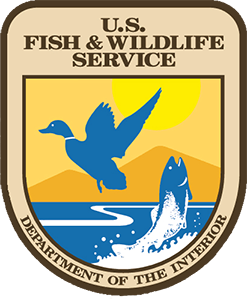
National Wildlife Refuge System
U.S. Fish & Wildlife Service
Winnie, TX
PHONE: 409-296-2418
Website
jena_moon@fws.gov
Working with others to conserve, protect and enhance fish, wildlife, and plants and their habitats for the continuing benefit of the American people.
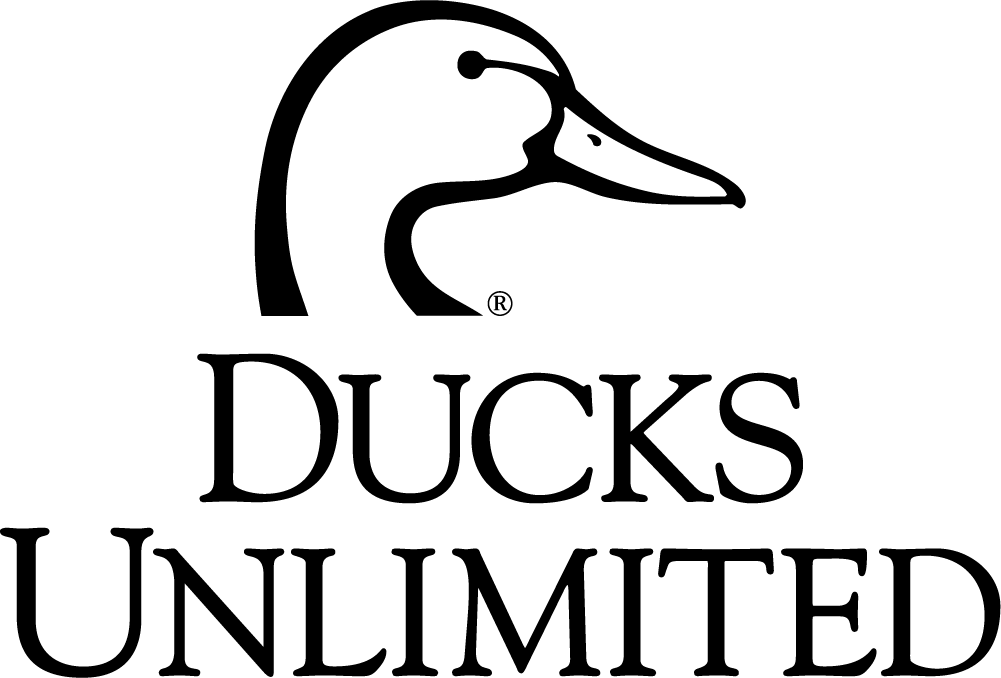
Ducks Unlimited
Richmond, TX 77469
PHONE: 832-595-0663
Website
khartke@ducks.org
The mission of Ducks Unlimited is to fulfill the annual life cycle needs of North American waterfowl by protecting, enhancing, restoring and managing important wetlands and associated uplands.

Migratory Bird Division
U.S. Fish & Wildlife Service
Albuquerque, NM 87103-1306
PHONE: 505-248-6881
Website
dan_collins@fws.gov
Working with others to conserve, protect and enhance fish, wildlife, and plants and their habitats for the continuing benefit of the American people.

College of Forest Resources
Department of Wildlife, Fisheries, & Aquaculture
Mississippi State University
Mississippi State, MS 39762-9690
PHONE: 662-325-4790
Website
brian.davis@msstate.edu
The mission for the College is to promote, support and enable the management, conservation, and utilization of forest and other natural resources to benefit the stakeholders of Mississippi, the Nation, and the world. Please take a moment to look over the complete vision for the College.

PO Box 1400
Sinton, TX 78387
PHONE: 361-364-2643
Website
djames@welderwildlife.org
The Welder Wildlife Foundation’s mission is to conduct research and provide education in wildlife science and management in the context of a working Texas cattle ranch.
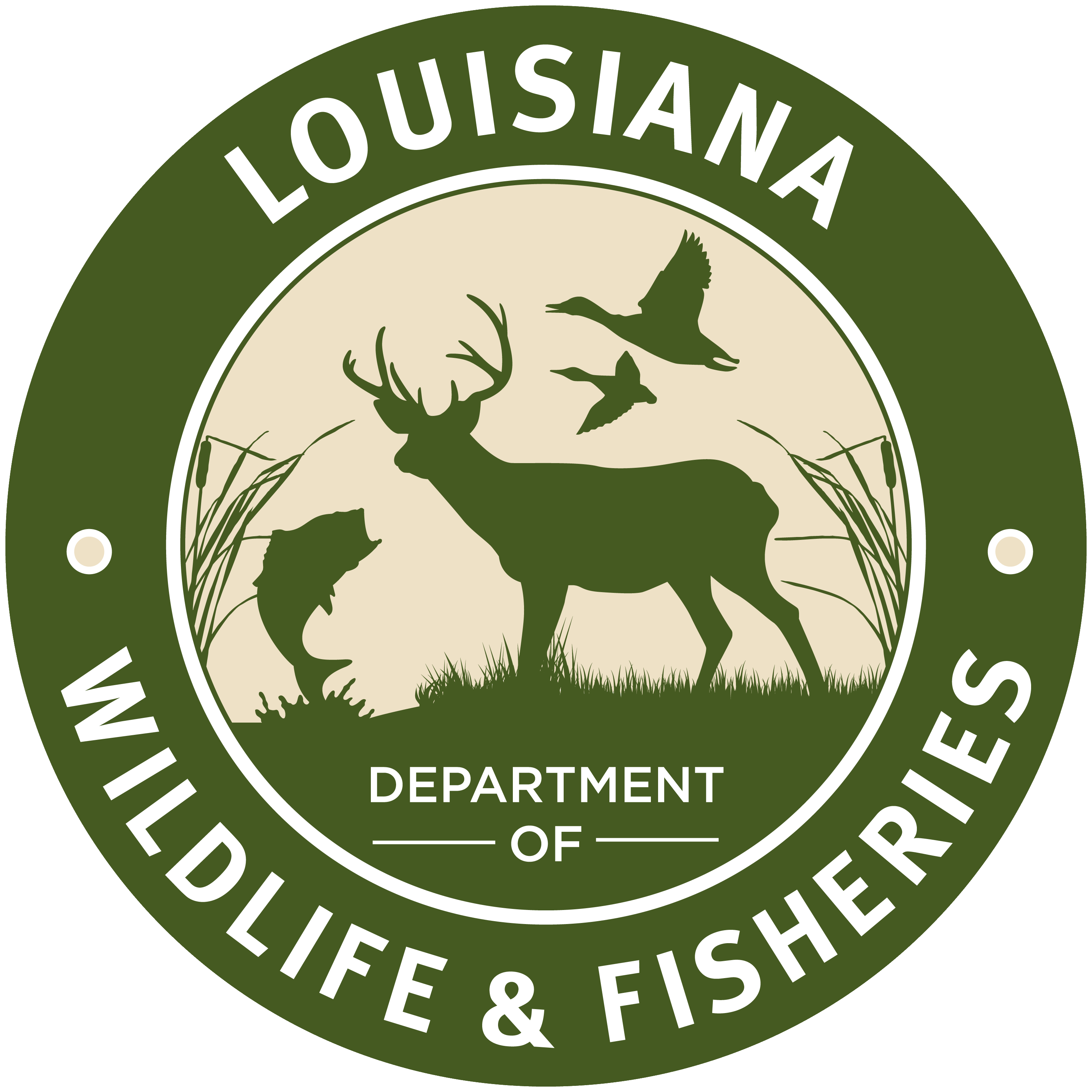
Louisiana Department of Wildlife & Fisheries
2000 Quail Drive
Baton Rouge, LA 70898-9000
PHONE: 225-765-0456
FAX: 225-765-2818
Website
lreynolds@wlf.la.gov
To manage, conserve, and promote wise utilization of Louisiana's renewable fish and wildlife resources and their supporting habitats through replenishment, protection, enhancement, research, development, and education for the social and economic benefit of current and future generations; to provide opportunities for knowledge of and use and enjoyment of these resources; and to promote a safe and healthy environment for the users of the resources.

Ducks Unlimited
1 Waterfowl Way
Memphis, TN 38120
PHONE: 901-758-3711
Website
mbrasher@ducks.org
The mission of Ducks Unlimited is to fulfill the annual life cycle needs of North American waterfowl by protecting, enhancing, restoring and managing important wetlands and associated uplands.

USGS Louisiana Cooperative Fish and Wildlife Research Unit
224 School of Renewable Natural Resources
Baton Rouge, LA 70803
PHONE: 281-748-4856
Website
dfowler@agcenter.lsu.edu
Staffed by U.S. Geological Federal personnel, Cooperative Research Units conduct research on renewable natural resource questions, participate in the education of graduate students, provide technical assistance and consultation on natural resource issues, and provide continuing education for natural resource professionals.
Landbird Working Group

USGS Wetland and Aquatic Research Center
700 Cajundome Blvd.
Lafayette, LA 70506
PHONE: 337-262-7013
Website
william_vermillion@fws.gov
The mission of the Gulf Coast Joint Venture is to advance the conservation of important bird habitats within the GCJV region through biological planning, implementation of habitat conservation actions, and focused monitoring and evaluation of the planning and implementation process. The GCJV encompassess a wide variety of habitats, from seagrass beds, coastal marsh, and barrier islands to bottomland forests, fresh emergent wetlands, rice fields, and bald cypress swamps.

Wildlife Diversity Program
Louisiana Department of Wildlife & Fisheries
200 Dulles Dr., Lafayette, LA 70506
Website
rdobbs@wlf.la.gov
The Louisiana Natural Heritage Program (LNHP), within the LA Department of Wildlife and Fisheries (LDWF), is part of the Natural Heritage Network. This network, originally developed by The Nature Conservancy and now coordinated by NatureServe, is designed to gather, organize and distribute standardized, detailed information on the biological diversity across all 50 U.S. states, Canada, Mexico, and also parts of Latin America.

School of Renewable Natural Resources
Louisiana State University
Baton Rouge, LA 70803
PHONE: 225-578-4221
FAX: 337-266-8610
Website
pstouffer@lsu.edu
LSU and the LSU Agricultural Center have a long tradition in natural resource education, research and extension, beginning with the first forestry class in 1911 and continuing to the present School of Renewable Natural Resources. The importance of this program is based on the $4 billion annual economic impact to Louisiana from natural resource commodities.

U.S. Fish & Wildlife Service
Division of Migratory Birds
6578 Dogwood View Pkwy.
Jackson, MS 39213
PHONE: 601-965-4900
Website
randy_wilson@fws.gov
Working with others to conserve, protect and enhance fish, wildlife, and plants and their habitats for the continuing benefit of the American people.

Coastal Research and Extension Center
Mississippi State University
1815 Popp's Ferry Rd
Biloxi, MS 39532
PHONE: 228-388-4710
Website
mark.woodrey
@msstate.edu
The Coastal Research and Extension Center is Mississippi State University’s “southern exposure,” linking residents of the coastal region to the university. The center’s mission is to conduct research and education programs aimed at developing a better understanding and use of renewable and nonrenewable resources in south Mississippi. Its applied research and educational programs with biological, physical and social systems focus on enhancing the quality of life of residents of Mississippi and other Gulf states. Our priorities address the specific needs of diverse communities including the health and well being of the people and responsible stewardship of unique natural resources.

USGS Wetland and Aquatic Research Center
700 Cajundome Blvd.
Lafayette, LA 70506
PHONE: 337-266-8645
Website
tzenzal@usgs.gov
The mission of the Wetland and Aquatic Research Center is to develop and disseminate scientific information needed for understanding the ecology and values of our nation's wetlands and for managing and restoring wetland habitats and associated plant and animal communities.
Waterbird Working Group

USGS Wetland and Aquatic Research Center
700 Cajundome Blvd.
Lafayette, LA 70506
PHONE: 337-262-7013
Website
william_vermillion@fws.gov
The mission of the Gulf Coast Joint Venture is to advance the conservation of important bird habitats within the GCJV region through biological planning, implementation of habitat conservation actions, and focused monitoring and evaluation of the planning and implementation process. The GCJV encompassess a wide variety of habitats, from seagrass beds, coastal marsh, and barrier islands to bottomland forests, fresh emergent wetlands, rice fields, and bald cypress swamps.

Department of Biology
Texas State University - San Marcos
601 University Drive
San Marcos, TX 78666
PHONE: 512-245-8037
FAX: 228-475-8097
Website
claygreen@txstate.edu
My research interests are focused on the ecology and evolution of birds and mammals. Areas of specific interest include the evolution of plumage coloration in birds, especially in plumage dimorphic species such as Reddish Egrets (Egretta rufescens). I am also interested in the evolutionary and ecological significance of sociality in birds and mammals and the effects of sociality in foraging, territoriality and reproductive behavior. Furthermore, I am interested in the conservation implications associated with understanding the social behavior of birds and mammals. I also have graduate students studying a broad array of topics in mammalian and avian ecology including habitat use, reproductive ecology, foraging behavior, and survey methodology.

USGS Louisiana Cooperative Fish and Wildlife Research Unit
School of Renewable Natural Resources
Louisiana State University
Baton Rouge, LA 70803
PHONE: 225-578-4179
FAX: 225-578-4144
Website
sking16@lsu.edu
Staffed by U.S. Geological Federal personnel, Cooperative Research Units conduct research on renewable natural resource questions, participate in the education of graduate students, provide technical assistance and consultation on natural resource issues, and provide continuing education for natural resource professionals.
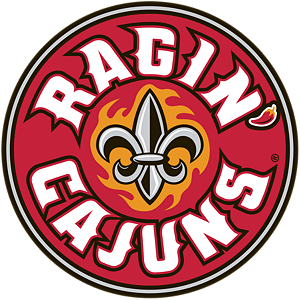
Department of Biology
University of Louisiana Lafayette
411 E. St Mary Blvd.
Lafayette, La 70503
PHONE: 337-482-6637
FAX: 337-482-5660
Website
leberg@louisiana.edu
The application of theory from ecology, evolution, and population genetics to questions in wildlife management and conservation biology drives the research in our laboratory. Our work tends to focus in the areas of conservation genetics and coastal ecology; however, students have considerable freedom to pursue their research interests.
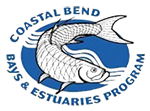
Coastal Bend Bays and Estuaries Program
615 N. Upper Broadway, Ste 1200
Corpus Christi, Texas 78401
PHONE: 361-336-0304
Website
dnewstead@cbbep.org
Coastal Bend Bays & Estuaries Program is dedicated to protecting, researching and restoring the bays and estuaries in the 12-county region of the Texas Coastal Bend. A part of the National Estuary Program, we work with local governments, conservation groups, teachers, students and the public to raise awareness of our natural surroundings through research, restoration and recreation projects. The bays and estuaries of the Texas Coastal Bend are havens for human recreation, wildlife habitats and serve as an economic engine. Their continued health, beauty and bounty are essential for continued enjoyment of both people and wildlife.
Shorebird Working Group

USGS Wetland and Aquatic Research Center
700 Cajundome Blvd.
Lafayette, LA 70506
PHONE: 337-262-7013
Website
william_vermillion@fws.gov
The mission of the Gulf Coast Joint Venture is to advance the conservation of important bird habitats within the GCJV region through biological planning, implementation of habitat conservation actions, and focused monitoring and evaluation of the planning and implementation process. The GCJV encompassess a wide variety of habitats, from seagrass beds, coastal marsh, and barrier islands to bottomland forests, fresh emergent wetlands, rice fields, and bald cypress swamps.
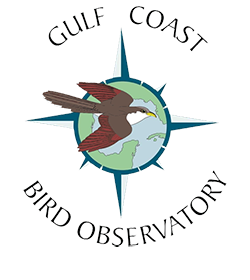
Gulf Coast Bird Observatory
299 West Highway 332
Lake Jackson, TX 77566
PHONE: 979-480-0999
FAX: 225-578-3075
Website
sheath@gcbo.org
The mission of the Gulf Coast Bird Observatory is to protect the birds and their habitats around the Gulf of Mexico. We have become recognized as an innovative organization, which has designed and conducted a significant number of large conservation projects, including migration studies, habitat enhancement, land acquisition, regional habitat mapping, and others.
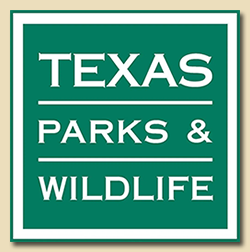
San Marcos, TX 75965
PHONE: XXX-XXX-XXXX
Website
owen.fitzsimmons
@tpwd.texas.gov
The mission of the Texas Parks and Wildlife Department is to manage and conserve the natural and cultural resources of Texas and to provide hunting, fishing and outdoor recreation opportunities for the use and enjoyment of present and future generations.
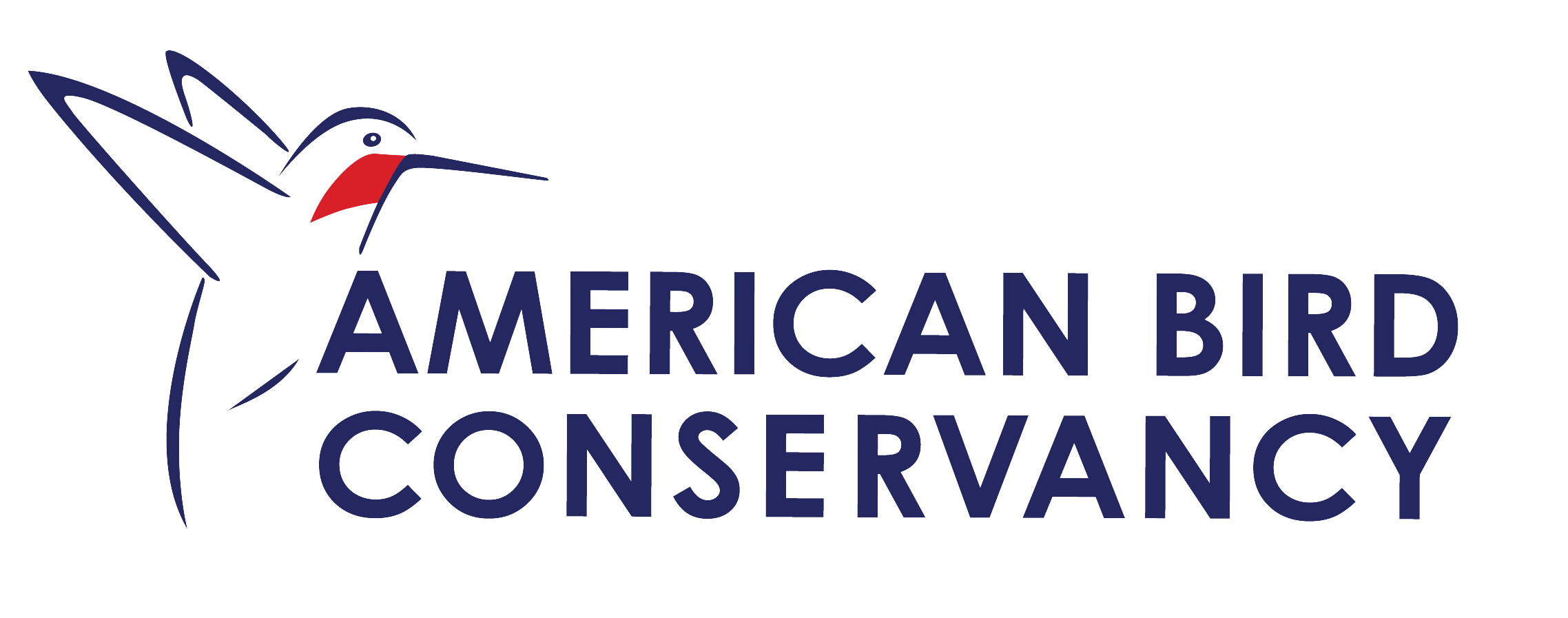
American Bird Conservancy
Houston, TX
PHONE: xxx-xxx-xxxx
Website
rgibbons@abcbirds.org
ABC's mission is to conserve native birds and their habitats throughout the Americas. With an emphasis on achieving results and working in partnership, ABC’s strategic approach is designed to prevent extinction of the most endangered birds, conserve important bird habitats, reduce major threats to birds, and build an Americas-wide community of bird conservationists.

Migratory Bird Division
Southwest Region (R2)
U.S. Fish & Wildlife Service
Albuquerque, NM 87103-1306
PHONE: 505-248-6515
Website
kelli_stone@fws.gov
Working with others to conserve, protect and enhance fish, wildlife, and plants and their habitats for the continuing benefit of the American people.

Department of Ecology and Evolutionary Biology
School of Science and Engineering
Tulane University
New Orleans, LA 70118
PHONE: 504-865-5172
FAX: 504-865-8706
Website
caz@tulane.edu
Current research projects include the Migratory Shorebird Ecology along coastal Gulf of Mexico, Spatial Ecology of Blue Crabs in the Gulf of Mexico, Movement and Population Dynamics of Monarch Butterflies, and the Urban Ecology of New Orleans. We are starting a new project studying monarch butterflies and their migration patterns. Former projects include Movement Ecology of Tree Swallows.

 700 Cajundome Blvd.
700 Cajundome Blvd.Lafayette, LA 70506
Phone: 337-262-7001 Fax: 337-262-7000
Copyright 2020 Gulf Coast Joint Venture - Webmaster
